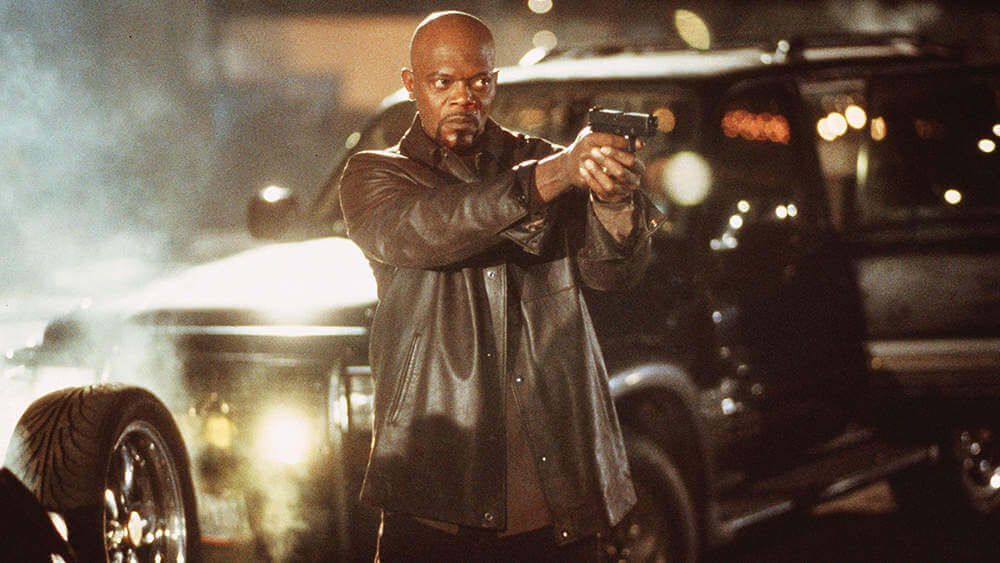If there is something, I love more than an action film, it’s an action film with a sense of humor. The Shaft is exactly that.
Tim Story has a knack for mixing action with humor and humor with action as was the case in some of his former directorial exploits such as Ride Along and Fantastic Four.
Two writers worked on Shaft who have great experience of working within comedy and between Kenya Barris and Alex Barnow, have written for shows including Black-ish, The Goldbergs, Rules of Engagement and Family Guy.

Shaft is a well-known name in black cinema, originating in the blaxploitation cinema of the 1970s, John Shaft debuted, played by Richard Roundtree, in 1971.
Roundtree continued in the role in the sequels to Shaft (1971) including Shaft’s Big Score (1972), Shaft in Africa (1973) and a TV series also named Shaft. Roundtree reprised the role again, this time as Uncle John Shaft in the 200 films of the same name, where Samuel L Jackson took up the Shaft mantle to deal out his level of justice. That is where it appeared Shaft would end as the film arguably flopped and was widely panned by critics and audiences worldwide.
However, here we are in 2019 and the next of the new breed of films arriving straight onto Netflix is another film called Shaft, in fact, a third generation in the name, and we are treated to all three generations in this action spectacle; John Shaft Snr. (Richard Roundtree), John Shaft (Samuel L Jackson) and JJ Shaft (Jessie T. Usher).

Usher is in his breakout year, following over a decade of minor roles, he picked up a greater role in the Independence Day sequel, but this year he is not only playing, the aforementioned, JJ Shaft, he is also playing A-Train in Amazon Prime’s new anti-superhero, superhero series The Boys.
This most recent iteration of Shaft reflects the changing mentality of the youth in cultural representations across the USA. JJ is the millennial version of Shaft, rebelling against the antiquated style of his former versions of himself in John and John Snr. JJ positions himself as better educated, more intelligent, anti-guns and very modern and asexual in his choices of outfits.
John, upon reuniting with his son, demonstrates the direct contrast to that in his trigger happy, street smart, womanizing, rule-breaking persona.

This plays on Jackson’s strengths and pays homage to prior roles where he has received gravitas for his humor and witty one-liners, even referring to the media confusion where he was mistaken for Laurence Fishburne.
The film never, from beginning to end plays itself to be a masterpiece. From the get-go, like 1971 original, and the confused 2000 version, Shaft is an homage to blaxploitation, it is a B-movie in every sense.
It is not a high budget film and doesn’t pretend to be, it plays on humor and old fashioned, guns out violence. The dialogue and one-liners are hammy but are intended to be, it throws back to the movie with taglines like ‘The mob wanted Harlem back.

They got Shaft … up to here.’ ‘Shaft’s his name. The shaft’s his game.’ And ‘Still the man’. Shaft attempts to modernize the B-movie and that is where it perhaps falls a little as Usher doesn’t seem strong enough to carry on the family name.
JJ doesn’t portray himself as strong enough/ good enough. The capoeira he demonstrates is amusing though lacking purpose. It is comical for the wrong reasons, looking more like a moment from Pink Panther where he accidentally catches the bad guy or accidentally knocks the bad guy out.
Usher is not the strength in the group and can only be supported by his seventy-something patriarchal figures. As such Jackson and Roundtree have to do a lot of carrying.
What is amazing about this film is that because the elder statesmen of the trio come for another time, the humor that is allowed to emanate from their lips is hilarious. There is little to no care about being politically correct or using the right terminology for things.
Instead, Shaft celebrates using the wrong terminology and invites a mirroring view, commenting that worrying about terminology and PC is pointless and a waste of time.
I came to this movie expecting it to be what I thought it should be and hoping that it was made the right way. I hoped for a celebration concerning its predecessors.
I hoped for uncompromising humor. I hoped for all-out shoot em up the action from John and John Snr. I hoped for a B-movie that enjoyed being a B-movie, that embraced the humor, violence and the off the cuff comments that can celebrate its blaxploitation roots.
I got everything I hoped for and more. Jackson seemed like a throwback of himself, hilarious and timed to perfection. There was the right mix of fourth-wall-breaking humor, self-reference and silliness to make anyone cry with laughter.
The violence was big and brutal, even more, so that I thought of points and I spent the whole time enjoying all of those aspects.
The only way you will be disappointed with this film is if you expect it to be what it isn’t and I’ve read plenty of those reviews already.







